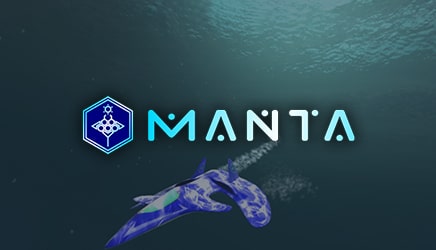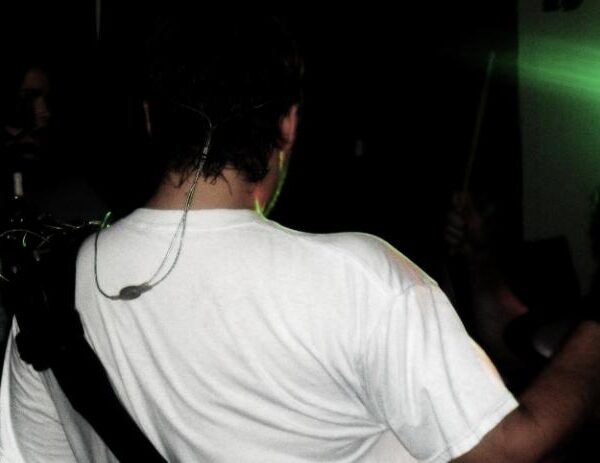Corn Mo is what can only be described as a ballad rock musician and vocalist, his music features wonderful comedy that surprises and shocks, sure to bring a smile to even the most hard-faced of people (I’m looking at you, Man in the Iron Mask!), Corn Mo is no stranger to the world of touring and in fact I would say his music is best experienced live, he’s performed with the likes of They Might Be Giants. Corn Mo even appeared as a bartender in an episode of Orange Is the New Black! He gets around!
I met Corn Mo on tour with Wheatus last year, we immediately formed a great connection with each other as Mark Redhead introduced us after Brendan B. Brown mentioned to me that he “Spoke like Prince yet sang like Bruce Dickinson”, and it’s true, John Cunningham’s alter ego as Corn Mo has two contrasting sides to his voice. Corn Mo definitely stood out on the tour as being quite different from what most people deem to be normal; it’s not every day you see a towering man playing the accordion and hitting a cymbal with a drumstick attached to their shoelaces whilst singing in a way that gives Iron Maiden a run for their money. Corn Mo was performing solo on that Wheatus tour, but when he’s not playing alone he’s with his band .357 Lover, interestingly I was well aware of their music from a Tony Hawk video game with mods that I played a while back with a custom soundtrack, it’s a very small world and I was as surprised as John was.
Hammy Havoc: You really do appreciate the arts even outside of music, you mentioned a collaborative piece before the interview that you did with a Texan art collective, what was that?
Corn Mo: I used to play benefit shows for an art collective called The Good/Bad Art Collective back in Denton, TX. They had one-night-only art shows and some of them were spectacular. They also curated music shows, one of which was The Rock Lottery, conceived by Chris Weber. They were commissioned to do an anniversary show in Dallas that was called Curtains. There were four rooms. Mark Ryan wrote a piece and then had three other musicians write a variation of it, keeping the same bpm’s so that the patron would hear similar sounds walking among the rooms. Another collective member has a daughter who is four and really into skulls right now. So, I had him record her talking about skulls and used her voice in my piece.
HH: You also mentioned before the interview that .357 Lover is the prom band in a ballet based on Carrie, can you tell me a bit more about Carrie: Blood, Fire & Ballet? Is the dance area of the arts something you’ve had much to do with in the past?
CM: We’ve worked with The Love Show in the past, they’re amazing. Angela Harriell is a great choreographer. It was a campy retelling of the story with a lot of heart. We weren’t in the first act so we were able to watch part of the ballet from the audience. It was very calming to watch.
HH: You’ve just finished your latest album now your drummer is in good health, how would you describe your latest record? What was the writing process like? Did you sit down as a band or did you write things on your own?
CM: I write the songs and usually try them out solo. Then, I present it to the band and they flesh it out.
HH: What was the recording process like with the new album?
CM: I got sick the day before my vocal tracks were to be done. I did them anyway which made my voice worse. I’m not sure if we kept any of those tracks. It was a month or two before I went back in. It was recorded to tape, edited digitally and then dumped back on tape, and then it was mastered for vinyl and digital.
HH: Are you a lover of DAWs or do you like to keep things analogue and out of the box?
CM: I record at home digitally but when I have the money I like to record analog. I don’t know how much of a difference it makes for the average listener but I do it out of tradition which is a stupid reason, probably. I do hate over-compressed sounds which has been a trend in mastering. My ears are sensitive to it.
HH: Did you use any new hardware or software on your new record that you’re particularly fond of?
CM: We used an old plate reverb. I liked it.
HH: You’re from Denton, Texas but you currently live in Brooklyn, New York now, what was the music scene like where you grew up? Did the music scene of Texas have a big influence on who you have become as a musician?
CM: I played in metal bands back in San Antonio and then moved to Denton to go to music school. I got burned out on music and dropped out after a year, but I got back into it a couple of years later. It was a great time to play in Denton in the late 90’s, there was a venue called The Argo that had a weekly Tuesday evening show called Big Ass Beer Night. You could get a huge beer, play a short set and watch your friends play. I am very fond of that time. My friends were very prolific, making me try harder. The Good/Bad also fostered a wonderful place for us to play. Chris Weber curated a show with five bands on five stages all facing each other, playing their sets at the same time. His Rock Lottery show featured 5 local drummers who picked names of other musicians out of a hat at 10am, and then the five newly formed bands had until 9pm to create a 3-song set. No covers. My band’s name was Code Name: Fuck.
HH: How do you feel about the modern music scene of Brooklyn?
CM: I like watching bands, I don’t do it enough. I joined a group called the Bushwick Book Club. Each month, the members read a book, and then write a song based on it and play it. I get to see a lot of singer/songwriters that way. The rents keep going up and some musicians move away so that they can have more time to make music. I like going to see Balthrop Alabama, Pendulum Swings, Charming Disaster, Mindtroll, Sxip Shirey, Danielle Eva Schwob and Dear Georgiana.
HH: Do you listen to much music or spend most of your time writing or performing your own? What could I expect to find in the most played area of your iTunes, or are you a fellow vinyl connoisseur? Any guilty pleasures or unexpected genres that you gravitate towards?
CM: I write a lot, but I don’t record as much as I should. I have some vinyl but my record player is currently broken. Lately, I’ve been listening to Klaatu, ELO, Genesis, Rush, Queen, Math the Band, Ennio Morricone. The new Wheatus album is great, too.
HH: What’s your background? How did you become a musician? Did you do anything before music? Or has it always been your one love?
CM: It’s always been there. My first fantasy was to build a tank out of cardboard, drive it down the center aisle to the stage and play my piano piece. I was 8.
HH: What age did you start?
CM: My first piano lesson was at age 6.
HH: Was the accordion the first instrument you learned to play?
CM: I played piano until I was 19. My friend’s mom worked at a homeless shelter in San Antonio. She found a broken accordion in the dumpster and thought I’d like to have it, she was right.
HH: Where did that massive voice come from? Did you work with a vocal coach?
CM: I work with a vocal teacher once a week. I had blown out my voice from street performing in Edinburgh and he helped me get it back. We started with show tunes. He apprehensively pulled out a book of Schubert’s lieder songs and I took to that immediately. He’s 88-years-old and has seen the greats – Jussi Bjorling, Dietrich Fischer-Dieskau, Thomas Quastoff. He was more excited than I was to work on these songs. Fischer-Dieskau’s ex-wife rents the studio we work out of, so it’s nice when she sticks her head in to smile.
HH: Do you have any unusual pre-show rituals that are as quirky as you are musically?
CM: I’m more relaxed then I used to be. I don’t drink alcohol or dairy the day of a show. I pace a lot, and I warm up my voice. Sometimes I listen to Queen or Van Halen.
HH: You’re multitalented musically, aside from being able to sing, play the accordion and play the piano, what other instruments can you play? Do you have any other talents? (Acting!)
CM: My mom bought me a banjo in return for keeping my hair short for a year, it’s easy to play but hard to master. I play guitar, a little sax, and i’m working on harmonica right now. I do like acting sometimes.
HH: Any other talents or skills we wouldn’t expect?
CM: I can open a beer bottle with my ring. That is a useful skill. I make my own BBQ sauce, I like making stop-motion videos, and I like writing short stories. I just directed a magic show, that was fun.
HH: You make a lot of appearances in places people wouldn’t expect from opening rather big tours and playing music in ballets to appearances in film and television, have you ever scored television or film? (Noticed your composer credits!)
CM: I’ve scored a little bit, mostly projects made by friends or acquaintances. I like making sounds.
HH: What’s that experience like versus the typical career path of touring and making records? Is writing to footage something you enjoy?
CM: I do like it, it’s fun, but I like touring better. I don’t like touring solo, so much. It gets lonely. My favorite tour was with the Bindlestiff Family Cirkus. It was my first tour. I didn’t make much money but I had a wealth of good times.
HH: How important is social media in the grand scheme of being a successful music artist in 2014? People make a lot of verbose noise on Facebook and Twitter, are people listening or are there better ways to market a band like making regular appearances elsewhere outside of social media?
CM: I don’t know what the best social media route is. I think the best way to market yourself is to tour. A manager told me to make a video like OK Go! so I said okay.
HH: I love how unusual .357 Lover is visually with wolves, candy canes and giant golden lions, who’s to blame for the bizarre aesthetic that accompanies the music? Is it something you thought up that represents the music?
CM: I saw a Mystery Science Theater show that had an amazing movie they were lampooning. I searched for it and found Father Frost, directed by Alexander Row. He made a lot of films during the Cold War era in the Soviet Union. His imagery inspired a lot of visions, including the werewolf/candy canes.
HH: Who is the designer?
CM: Our bass player, Dave Wallin. When I wanted artwork for The Magic Is You! I sent him a host of pictures of wolves with direction under each one. I told him I wanted it to look like someone drew it at their desk during school hours. When he gave it to me it looked exactly how I pictured it in my head. The same with Diorama of the Golden Lion. I told him I wanted Daniel Boone in awe of the Golden Lion. He created an amazing piece. He does it every day at his tattoo shop. He’s also designed game cards for Magic the Gathering and he designed the labels for Coney Island beers.
HH: You’re definitely a forward thinking artist, I had seen Dropcards on the internet before, but I had never seen one in the UK before the Wheatus tour, how would you describe your marketing strategy as a band?
CM: Our marketing strategy is terrible. The manager who told me to make a clever video told us that it doesn’t matter how good you are musically, it’s how good you are at being known. Dropcards don’t sell very well. People still like CDs or vinyl, something they can look at. MC Lars and Wheatus made custom thumb drives that contained the whole catalog of songs, that was a great idea.
HH: We’re in the Wild West era of the internet currently with all sorts of things being tried such as crowdfunding, how did you find your Kickstarter experience? Is crowdfunding here to stay?
CM: We were worried about people not wanting to give us money to make a record. But, we were wrong. We made our goal, we still lost money but that happens, I’m glad we did it. We always wanted to have a nice looking vinyl record and now, we do. I think it’s great that people can invest in someone else’s dream. There are some great ideas that come to fruition because of Kickstarter. I had a friend who made films in the 90’s. He had to pitch his ideas to investors all the time. He equated it to finding people who would buy you a ship in order to find buried treasure. Now, you can offer rewards up front for anything.
HH: Do you feel that the music industry declined and is now coming back bigger than ever now that the industry has adjusted to technology being mainstream? Do you believe that the concept of a label is fundamentally changing to being more of a collective of individuals pooling resources to achieve their goals? Do you think that the major labels have a future with their current business models and lack of care for the artist?
CM: I don’t know. I read a book called Mansion on the Hill that chronicles some of the music industry from the Boston folk rock scene up through David Geffen meeting Bill Clinton. It started very small with a vision to make full rock albums in a market that supposedly only enjoyed singles with b sides and movie soundtracks. After reading it, I still don’t know how it works. I’ve never been signed to a label so I don’t know what that’s like.
HH: Do you believe that piracy is killing the music industry or are things like torrents and streaming giving artists a larger fanbase from people who wouldn’t have bought a record of any artist anyway?
CM: I’ve heard sound arguments from both sides. I don’t know the answer. I think the music industry needs to find an Edward Bernays who will sway the masses into buying record players again. He got people to buy books by getting architects to put bookshelves in house designs among other feats. But, all of that eventually becomes landfill. I won’t stop anyone from buying my music.
HH: Is the concept of an album still very much alive versus EPs and singles? Has music become something that accompanies a larger part of someone’s life than ever before yet isn’t truly being sat down and listened to as the main activity like how vinyl was?
CM: A friend of mine bought vinyl records of older bands that he’d never listened to. He found himself listening to the whole thing, since it takes more effort to walk over and move the needle. The ease of clicking to another song is too easy.
HH: What’s have you been up to in terms of videos for Corn Mo and .357 Lover?
CM: I’ve been working on one for “Pageant Parade” along with a how-to video on making grilled pizza that uses “Get Me Off”.
Corn Mo is currently on a US tour with another shared friend of Wheatus called MC Frontalot, you can find the tour dates on Corn Mo’s website.
I would like to extend a special thanks to Reuben Radding, a professional photographer and a friend of myself and Corn Mo, for providing the brilliant photograph of Corn Mo.




Like this article? Share with your friends!